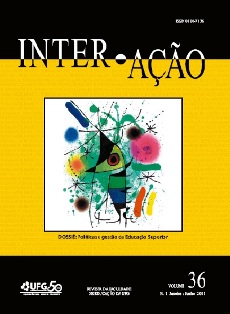CULTURAL LIMITS FOR THE CONSOLIDATION OF DEMOCRATIC SCHOOL MANAGEMENT IN A TRADITIONAL CONTEXT
DOI:
https://doi.org/10.5216/ia.v36i1.15038Abstract
This article analyzes the interference of cultural aspects in the inner dynamics of the school, and in particular, the implications of the process of building a social and political identity for the consolidation of democratic school management. It traces the cultural force of hierarchy, personalism, political cronyism, patrimonialism, and religious moralism in a traditional context. It also shows the consequences of the symbolic articulation undertaken by politics when these cultural elements are transformed into considerable domination processes in school organization and management. These analyses are based on a collective case study of an ethnographic nature, carried out at two public schools in the municipality of Morrinhos in the Brazilian state of Goiás.Downloads
Downloads
Published
How to Cite
Issue
Section
License
Inter-Ação uses the Creative Commons Attribution 4.0 License for Open Access Journals (Open Archives Initiative - OAI) as the basis for the transfer of rights. Open access means making documents available on the Internet free of charge, so that users can read, download, copy, distribute, print, search, or link to the full text of documents, process them for indexing, use them as input data for software programs, or use them for any other lawful purpose, without financial, legal, or technical barriers.
Authors publishing in this journal agree to the following conditions:
1) Authors retain copyright and grant the journal the right of first publication, with the work simultaneously licensed under the Creative Commons Attribution License, which permits redistribution of the work with attribution and first publication in this journal.
2) Authors are permitted to enter into additional, separate agreements for non-exclusive distribution of the version of the work published in this journal (e.g., for publication in an institutional repository or as a book chapter), with attribution and first publication in this journal.
3) Authors are permitted and encouraged to publish and distribute their work online (e.g. in institutional repositories or on their home page) at any time before or during the editorial process, as this may generate productive changes as well as increase the impact and citation of the published work.















